“Historically, political protest has been spurred by voices within marginalized groups, by those people who express the concerns of the repressed, and are seen as belonging to radical and isolated segments of society,” says Daniel Q. Gillion. “Conversely, electoral outcomes in democracies demonstrate the will of the people and represent majoritarian preferences. As a consequence, political protest is often viewed as being a contrarian perspective to the outcome of political elections,” he writes in The Loud Minority: Why Protests Matter in American Democracy.
“I posit, though, that protests are a part of the social learning process, and act as an avenue of social communication between activists and nonactivists. In particular, protests serve as an informative cue that voters use to evaluate candidates as well as social conditions,” Gillion adds.
In his view, protest is not merely a chance to let off steam; on the contrary, it’s an important harbinger of new directions. “Protests,” he writes, “are the canaries in the coal mines that warn of future political and electoral change.”
Writing at the Monkey Cage, Lara Putnam, Erica Chenoweth and Jeremy Pressman have gathered data about the demonstrations and conclude that there has been far greater social mobilization now than even during the women’s marches, Tuft University’s Dan Drezner writes for The Post: “The United States rarely has protests in this combination of size, intensity and frequency; it usually has big protests or sustained protests, but not both.”
Some experts see recent events as a disturbing sign of democratic regression, The Post reports.
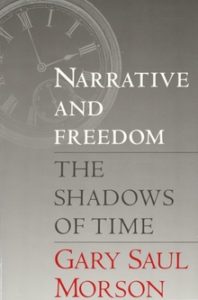 But violent protests can also enhance ideological polarization and breed intolerance of dissenting opinions, says Gary Saul Morson, 72, a professor of Russian literature at Northwestern University and an accomplished interpreter of Fyodor Dostoevsky, Anton Chekhov and Leo Tolstoy. Obviously we haven’t arrived at anything like what Lenin called a “revolutionary situation,” Mr. Morson says, but we have arrived at a situation in which well-intentioned liberal people often can’t bring themselves to say that lawless violence is wrong, he tells The Wall Street Journal’s Barton Swaim:
But violent protests can also enhance ideological polarization and breed intolerance of dissenting opinions, says Gary Saul Morson, 72, a professor of Russian literature at Northwestern University and an accomplished interpreter of Fyodor Dostoevsky, Anton Chekhov and Leo Tolstoy. Obviously we haven’t arrived at anything like what Lenin called a “revolutionary situation,” Mr. Morson says, but we have arrived at a situation in which well-intentioned liberal people often can’t bring themselves to say that lawless violence is wrong, he tells The Wall Street Journal’s Barton Swaim:
The danger begins, he thinks, when complex social and political problems can’t be debated any longer. “You get into a revolutionary situation because people can’t hear,” he says…..The assumption of historical inevitability may play a part here. You hear it in our political language: A favored policy is “an idea whose time has come,” a disfavored one is “on the wrong side of history.” This sort of teleological thinking—history has a direction, and that direction is identical with our political views—is fervently, if unconsciously, embraced by highly educated people today.”
“Does history have a direction? And is later necessarily better? The greatest thinkers—Tolstoy, Alexander Herzen—answered no, later is not always better. They believed that sort of thinking was an importation of religious providentialism into history—the determinism of Hegel and Marx. The difficulty of this form of thinking is that it paralyzes you from acting. Between the wars, it was common for people to say: ‘Yes, you may like liberal democracy, but that’s of the past. We fascists are of the future.’ Or ‘We communists are of the future.’ People would resign themselves to the inevitable and conclude, ‘Well I can’t fight the future, I can’t resist the fascists or the communists.’ ”
“Literature, history, and the sciences frequently present experience as if contingency, chance, and the possibility of diverse futures were all illusory,” Morson writes in Narrative and Freedom. “As a result, people draw conclusions or accept ideologies without sufficiently examining their consequences or alternatives.”
Protest as democratic expression
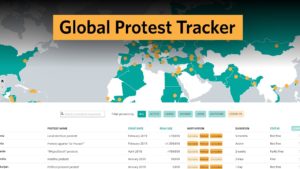
Credit: Carnegie Endowment for International Peace
“The way I see protests translating into political change is through the communication of protesters to non-protesters. I believe that protesters and their message are viewed in a light that is already preconceived,” says Gillion.
Protests have always been a part of the very fabric of American democracy. Think of the original Tea Party protest, he adds:
Since then, democratic expressions have largely been captured through the voting process. However, protest also expresses the democratic will of the people. These expressions might stem from marginalized segments of society, but they remain important voices that make our democracy more holistic.
“The reality is that—objectively examining protests—violent protest has a positive impact on political and policy change,” Gillion tells GQ. “Nonviolent protest brings awareness to an issue; violent protest brings urgency to an issue. It forces individuals to pay attention to these important discussions of race relations.”
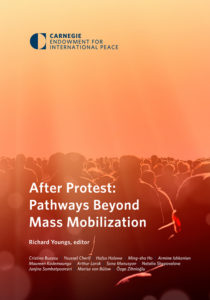 Voting is one of the most cherished forms of political action in a democracy, he adds:
Voting is one of the most cherished forms of political action in a democracy, he adds:
The voting process allows average citizens to play a fundamental role in reshaping their government. The history of citizens’ voting preferences is a record of the political evolution of society. At any given election, voting outcomes reflect what our society wants and demands at that moment. It is the will of the people condensed down into the selection of a candidate. It is thus at this moment that the silent majority finally gets it say.
Democratic expression is the groundswell of political activism, Gillion writes.
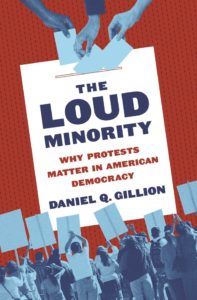 Social media has become a central battleground for the protests across the U.S., with tech platforms amplifying tensions while also providing a real-time chronicle of the riots and police responses that might not have otherwise gained widespread attention, Sarah E. Needleman and Sebastian Herrera write for The Wall Street Journal:
Social media has become a central battleground for the protests across the U.S., with tech platforms amplifying tensions while also providing a real-time chronicle of the riots and police responses that might not have otherwise gained widespread attention, Sarah E. Needleman and Sebastian Herrera write for The Wall Street Journal: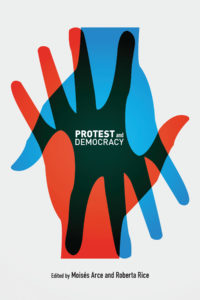 Political protests and activism have a direct influence on voter and candidate behavior in democracies, according to a new analysis.
Political protests and activism have a direct influence on voter and candidate behavior in democracies, according to a new analysis.
 But violent protests can also enhance ideological polarization and breed intolerance of dissenting opinions,
But violent protests can also enhance ideological polarization and breed intolerance of dissenting opinions, 
 Voting is one of the most cherished forms of political action in a democracy, he adds:
Voting is one of the most cherished forms of political action in a democracy, he adds:





